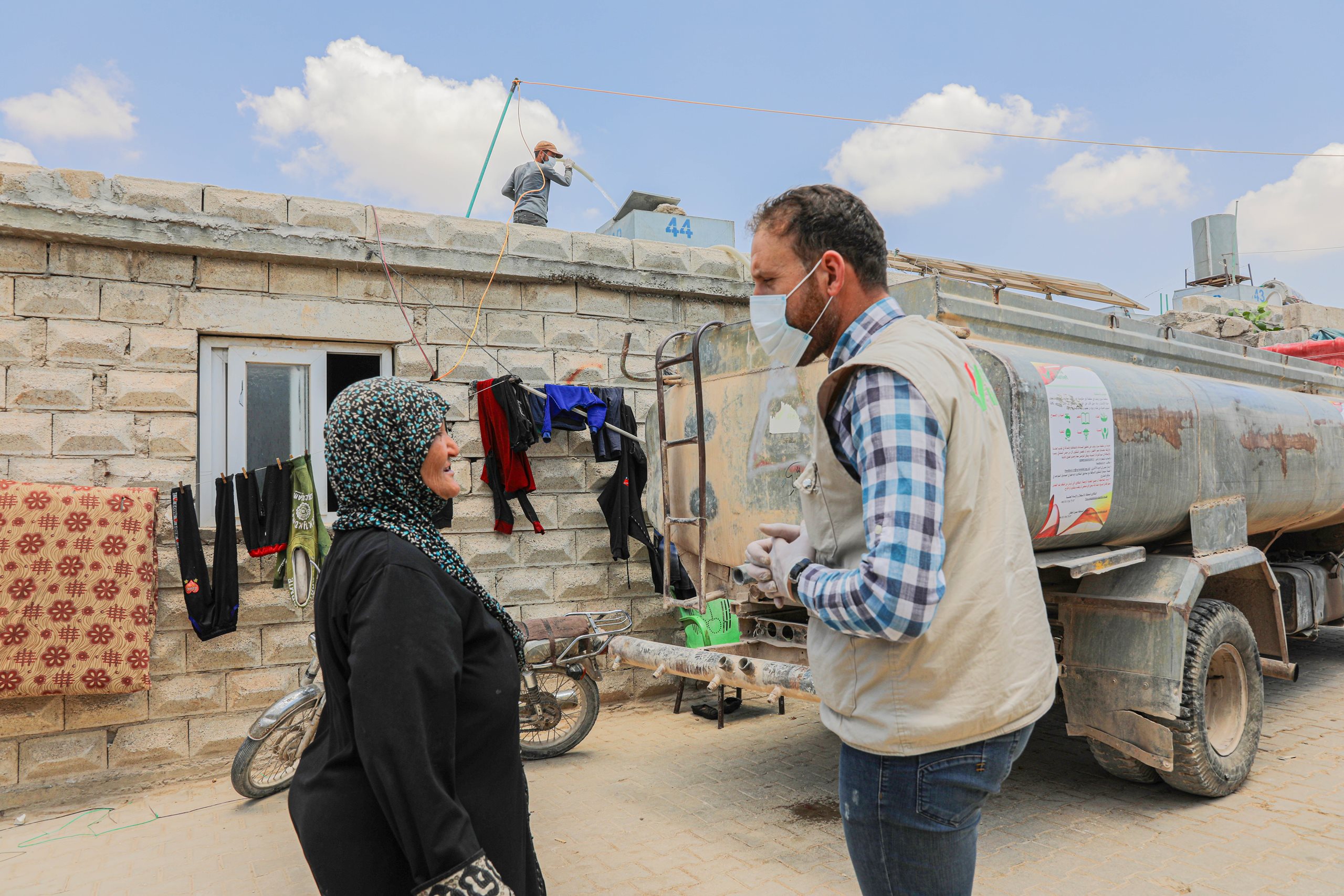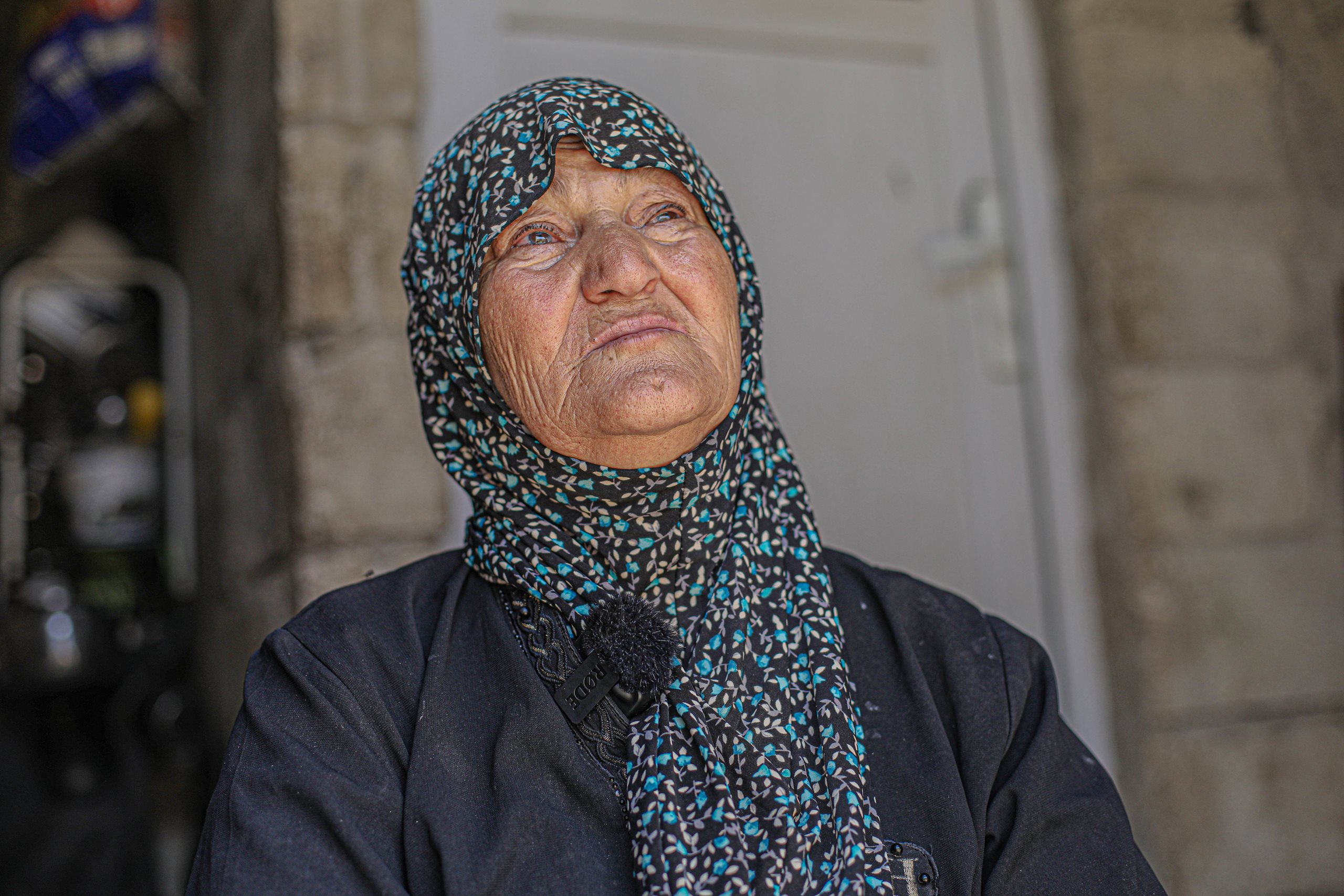Written by Helen Barclay-Hollands, Head, Fragile & Humanitarian Affairs, World Vision Canada
World Humanitarian Day offers us a poignant opportunity to reflect on the unwavering commitment of those who dedicate their lives to alleviating human suffering. We celebrate humanitarians worldwide and recognize local actors’ critical role in humanitarian crises. These are the first responders and real, local heroes who dedicate their lives and work to protecting others in need.
Local leadership and community-driven responses yield immense transformative power. Countless individuals and organizations work on the ground, often in challenging conditions, to provide immediate relief and drive sustainable recovery. Local heroes are not just first responders; they are cultural experts, community connectors and resilience builders who understand their people’s unique needs.
On February 6, 2023, a 7.8 magnitude hit Türkiye and North-West Syria, thousands of aftershocks continued, and over 55,000 people lost their lives. In Syria, the earthquake exacerbated the effects of the ongoing war, deepening the crisis for approximately 3.7 million children.

When disaster strikes, World Vision is able to respond quickly and effectively through local partners.
World Vision responded immediately and contacted local partners on the ground, first and foremost checking in on their safety and well-being. Within 24 hours, World Vision released funding to local partner organizations to enable a rapid response to the most severely affected communities in North-West Syria.
Action for Humanity (AFH) and the Syrian Expatriate Medical Association (SEMA) are World Vision’s local partners in North-West Syria. These organizations have a strong presence in the targeted locations, which has developed over years of project implementation and building trust with the community. They actively contributed to the project design, utilizing their local knowledge and expertise to ensure it was contextualized and relevant and responded to the most urgent needs. They worked hand-in-hand with the affected population to identify their needs and respond, providing WASH (Water, Sanitation and Hygiene), essential health care and nutrition services.
World Vision transferred funds directly to SEMA and AFH to ensure they could respond quickly and effectively. In the days after the earthquake, they were able to staff and equip emergency clinics, provide much-needed primary healthcare services, and respond to the nutritional needs of vulnerable children. This is part of World Vision’s ongoing commitment to the growth of local organizations in their capacity to deliver humanitarian relief.
AFH was able to reach women like Samah, displaced from her home in North-West Syria due to the conflict and yet again in need after the earthquake. She suffered the loss of her children after the earthquake, but her family felt they were cared for and not left alone in the middle of another crisis. She shared, “I am grateful for the support we have received; I feel someone cares about us. Not only did this support help us through a difficult period, but it gave me a glimmer of hope to push through life.”
 Through local partnerships, World Vision is able to support women like Samah, who was displaced during the crisis.
Through local partnerships, World Vision is able to support women like Samah, who was displaced during the crisis.
Working through local partners has allowed World Vision to access difficult-to-reach areas in North-West Syria and engage with displaced families, hosting families and communities and Syrian civil society in a manner that promotes human dignity. It has also enabled World Vision to work on its localization agenda in line with its commitment to the Grand Bargain and as part of its exit strategy of being able to hand over its mandate to local organizations in the longer term.
For World Vision, localization* is not just a strategy; it’s a commitment to empowering communities and fostering resilience. Building effective partnerships, such as with SEMA and AFH, is crucial to enhancing the overall impact of humanitarian aid by ensuring meaningful collaboration and co-designing solutions. As we mark World Humanitarian Day, we want to honour and celebrate the local heroes on the frontlines of humanitarian efforts who make a difference in their communities daily.
*In its simplest expression, localization encourages putting local actors in the lead of development and humanitarian programming. It recognizes that local actors are already working before external interventions are introduced and will remain long after they end.